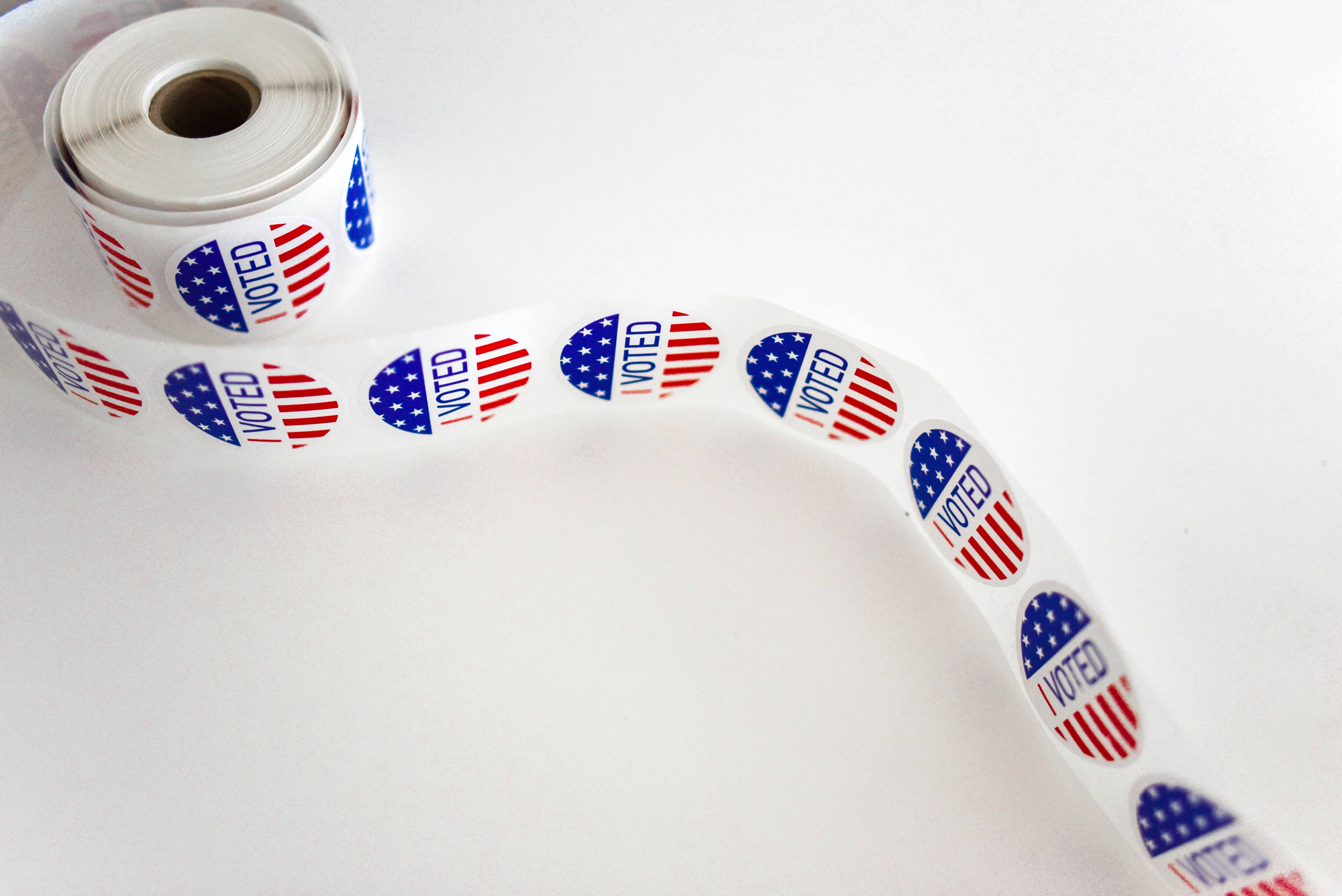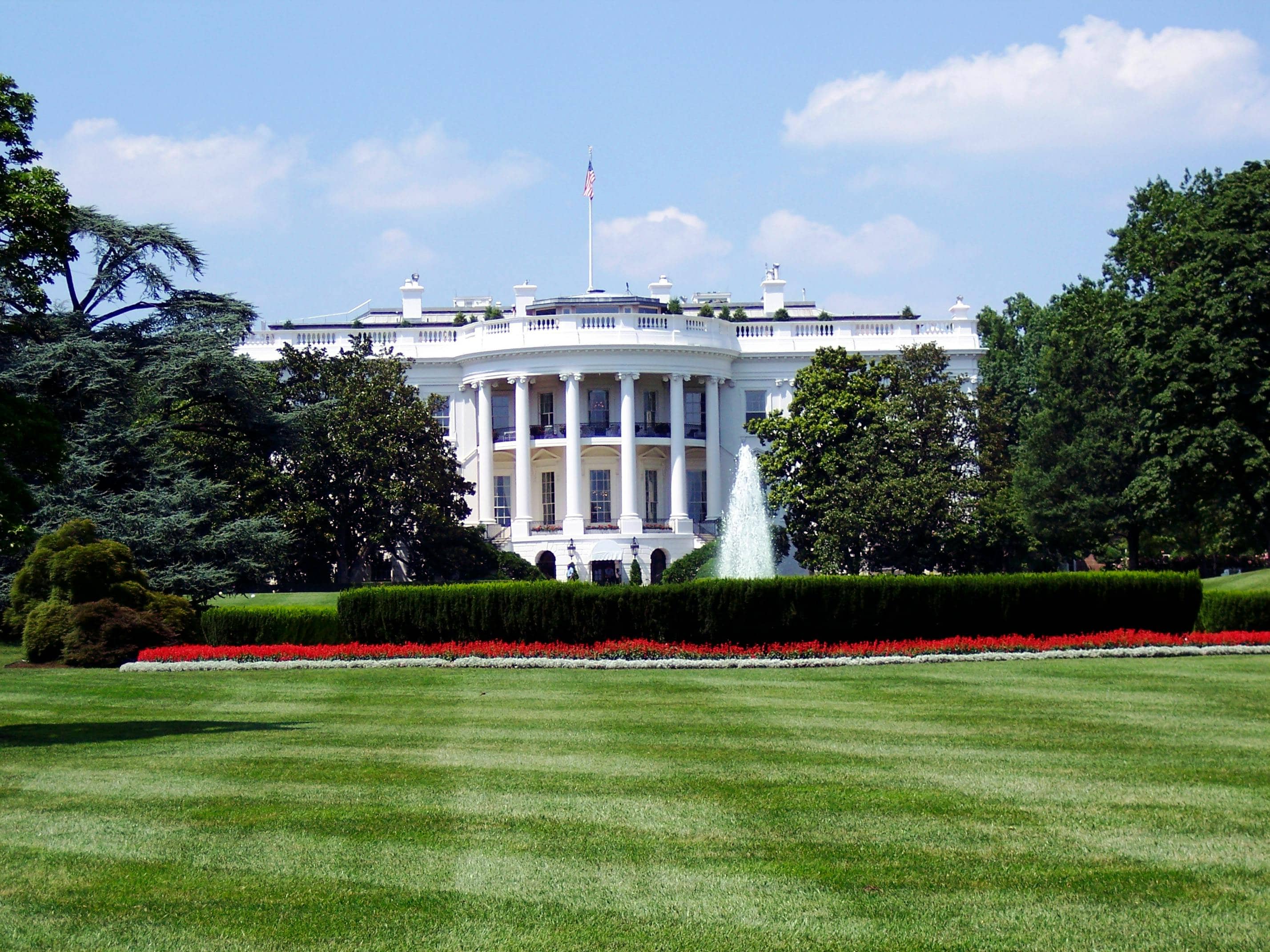How To Support Your Mental Health & Reduce Election Anxiety During An Election Year

How To Support Your Mental Health & Reduce Election Anxiety During An Election Year
As we inch closer to the 2024 Presidential election, you have likely noticed tensions rising. Election years bring up a wide range of emotions for people, no matter where they land on the political spectrum. Divisive conversations and stress about the future can lead to more intense emotions than usual. Subsequently, election years can be very busy times for mental health professionals! We thought it might be a good idea to share some of the insights that we incorporate into our own lives and also share with our clients during politically-charged times.
 Survey Says: Americans Have Negative Feelings Around Politics
Survey Says: Americans Have Negative Feelings Around Politics
A June 2023 survey from Pew Research Center, a nonprofit, nonpartisan, and nonadvocacy organization, shared that 65% of those surveyed said, “they always or often feel exhausted when thinking about politics.” 55% of Americans surveyed said they feel angry when thinking about politics.
The survey also asked participants to describe their feelings about the political system and elected officials, using their own words. Alarmingly, only 2% of respondents used positive terms. 79% of those surveyed used negative or critical words. Specifically, the words “divisive” and “corrupt” were used most frequently. Individuals from both parties were similarly negative in their language around politics. It’s no wonder this is such a challenging time for many of us.
The good news is: there are several strategies we can all use to help maintain our mental well-being during this politically-charged time.
Here are nine recommendations for supporting your mental health in an election year:
1. Embrace All The Feelings, Even Negative Ones
This is important. Negative feelings can be really helpful! When addressed, negative feelings can help us understand ourselves, our needs, and what we really want out of life and relationships. In the political arena, it can motivate us to take action. However, negative feelings along with a feeling of powerlessness (thoughts that there’s nothing we can do to change anything, for example) can not only be unproductive, but can lead to depression, anxiety, and a sense of hopelessness.
It’s important to process both positive and negative feelings. This starts by becoming aware of how we are feeling in the moment. By playing the part of an observer, we can notice that intense feelings are not permanent; thankfully, they come and go. When we try to avoid negative feelings, we ultimately create more problems.
2. Limit Media Consumption
Before 24/7 news cycles existed, we had significantly more time to focus on other things. No matter where you are on the political spectrum, it’s not particularly helpful to spend 24 hours a day tuned in. If you find your blood pressure rising everytime you watch the news or listen to a politically-charged podcast, we recommend taking even more time away from your news feed.
If you really enjoy closely following the election news, but it’s also stressing you out, set a time limit so you can get the benefits of some exposure without taking it too far. One practical way to manage this is by setting specific times during the day to check the news. Instead of consuming information throughout the day, allocate one or two periods where you stay updated, preferably from reliable sources. This way, you’re still informed but not constantly bombarded by negativity. Modifying the frequency of notifications is key here.
3. Discuss Politics With Care, For Your Mental Health
Political discussions are inevitable during election years, but they don’t always have to be contentious. Engaging in civil discourse can help you understand and stay connected to friends and family members who you happen to disagree with. Rather than entering conversations with the goal of winning an argument, try to focus on listening.
Ask yourself: What can I learn from this person’s perspective? By adopting a mindset of curiosity rather than confrontation, conversations become more enriching and less stressful. No matter what side of an issue you are on, if you are curious about the “why” behind someone’s political view and dig a little into their own story, you can not only understand their rationale, but also feel more connected to them.
There are times when even the most well-intentioned discussions can become heated. It’s important to recognize when a conversation is no longer productive. If a discussion is causing frustration or anxiety, give yourself permission to kindly step away. You can politely excuse yourself or change the subject to a more neutral topic.
 4. Set Boundaries With Others, If Needed, To Reduce Election Anxiety
4. Set Boundaries With Others, If Needed, To Reduce Election Anxiety
If there are people in your life who obsessively follow the election and want to update you about every new development, especially the small ones, it is very reasonable set some boundaries. Let them know that you are feeling stressed about the election and it would be helpful to you to have less exposure to information about it. If you need to take a break from those relationships for a brief period of time, do what you have to do.
5. Manage Social Media Usage, To Reduce Election Anxiety
Social media platforms can be particularly volatile during election cycles, with algorithms often amplifying divisive content. While these platforms can be useful for connecting with others, they can also contribute to stress.
You have the power to curate your feed. Many platforms allow users to mute or unfollow people without completely severing connections. If certain friends or accounts are frequently posting content that stresses you out, consider muting them temporarily. You can also seek out accounts that provide a more balanced or helpful perspective.
Taking intentional breaks from social media can significantly reduce feelings of anxiety and overwhelm, in general – not just during an election year. This doesn’t mean disconnecting entirely for weeks at a time (though that’s an option), but rather setting specific periods of the day where you’re offline. This break gives your mind a chance to rest and reset.
6. Practice Radical Self-Care
Taking self-care seriously during stressful times is essential. Finding ways to rest, recharge, and get refreshed physically and emotionally can help you stay grounded, even when external circumstances are challenging.
Exercise
Exercise is one of the most effective ways to reduce stress and boost mood. Whether it’s a daily walk, yoga session, or a more intense workout, physical activity helps release endorphins and provides a break from the stressors of daily life. It’s important to note that exercising can have benefits, even in small doses. Even if you aren’t ready to commit to an hour of daily exercise, just a few minutes of activity when an opportunity presents itself can also make a difference.
Mindfulness and Meditation
Mindfulness practices, such as meditation or deep breathing exercises, can help calm the mind and reduce feelings of overwhelm. Even just five to ten minutes of mindfulness each day can have a significant impact on your mental well-being. There are plenty of apps for beginners, as well as books and audio recordings to get you started. We are particularly fond of Jon Kabat-Zinn, founder of Mindfulness Based Stress Reduction and Dr. Kristin Neff, a leader in the area of self-compassion.
Sleep and Nutrition
Getting enough rest and eating well are foundational to mental health. The stress of an election can lead to poor sleep or unhealthy eating habits, which can further affect your mood. We recommend prioritizing sleep by establishing a bedtime routine and trying to avoid screens at least an hour before bed. Similarly, by focusing on a balanced diet that provides the energy and nutrients your body needs to handle stress, you can also prevent the cycle of shame that can come with stress eating.
7. Focus on What You Can Control
One of the reasons elections are so stressful is the feeling of powerlessness that can arise when it seems like so much is at stake. However, focusing on what you can control is a powerful way to reduce anxiety.
Taking tangible steps to support the causes you care about can help alleviate feelings of helplessness. Whether it’s volunteering, making phone calls, donating, or simply voting, giving yourself a sense of agency can be therapeutic. At the same time, it’s crucial to acknowledge that not everything is within your control. You can’t necessarily change the opinions of others or truly predict the outcome of an election. Accepting this fact can reduce anxiety and help you focus on the areas where your actions can make a difference.
 8. Stay Connected to Your Support Network
8. Stay Connected to Your Support Network
During election years, it’s easy to feel isolated or overwhelmed by the sheer volume of information and discourse. Staying connected to friends and family who share your values can be a great source of comfort. We recommend prioritizing spending time with those who bring you comfort.
While it’s normal for elections to dominate conversations, it can be helpful to engage in discussions about topics unrelated to politics. Whether it’s hobbies, movies, or future plans, talking about something else can provide a mental break and help to reduce stress.
9. Know When to Seek Help For Your Mental Health
If the stress of an election year becomes overwhelming to the point where it is affecting your daily life, it may be time to seek professional help. Mental health professionals can provide support and strategies to cope with stress, anxiety, and any other mental health challenges you might be facing.
Talking to a therapist can help you process your emotions, gain perspective, and develop coping strategies. If political stress is interfering with your ability to function, therapy can provide the tools you need to manage it effectively.
You’re not alone in feeling overwhelmed by the political climate. Many people experience similar emotions. It is important to check in with yourself to recognize when extra support is needed.
Now Is A Good Time To Prioritize Your Mental Health & Take Action To Reduce Election Anxiety
Election years can be stressful, but with the right strategies and support, you can protect your mental health. By setting boundaries, practicing self-care, and staying focused on what you can control, you can navigate the ups and downs of the political season with greater ease. Remember, it’s okay to step back and take action to stay centered – and to prioritize your well-being above all else.
At Nashville Psych, our team of clinicians are well equipped to help you stay mentally healthy during this intense election year. Contact us to learn more and explore how we may be able to help.



